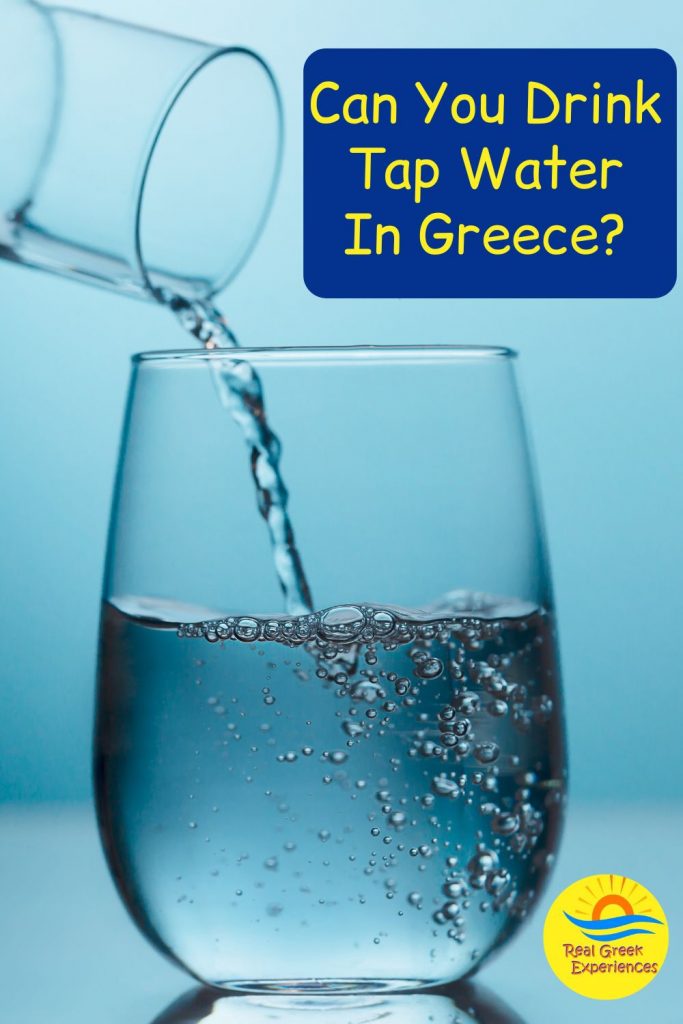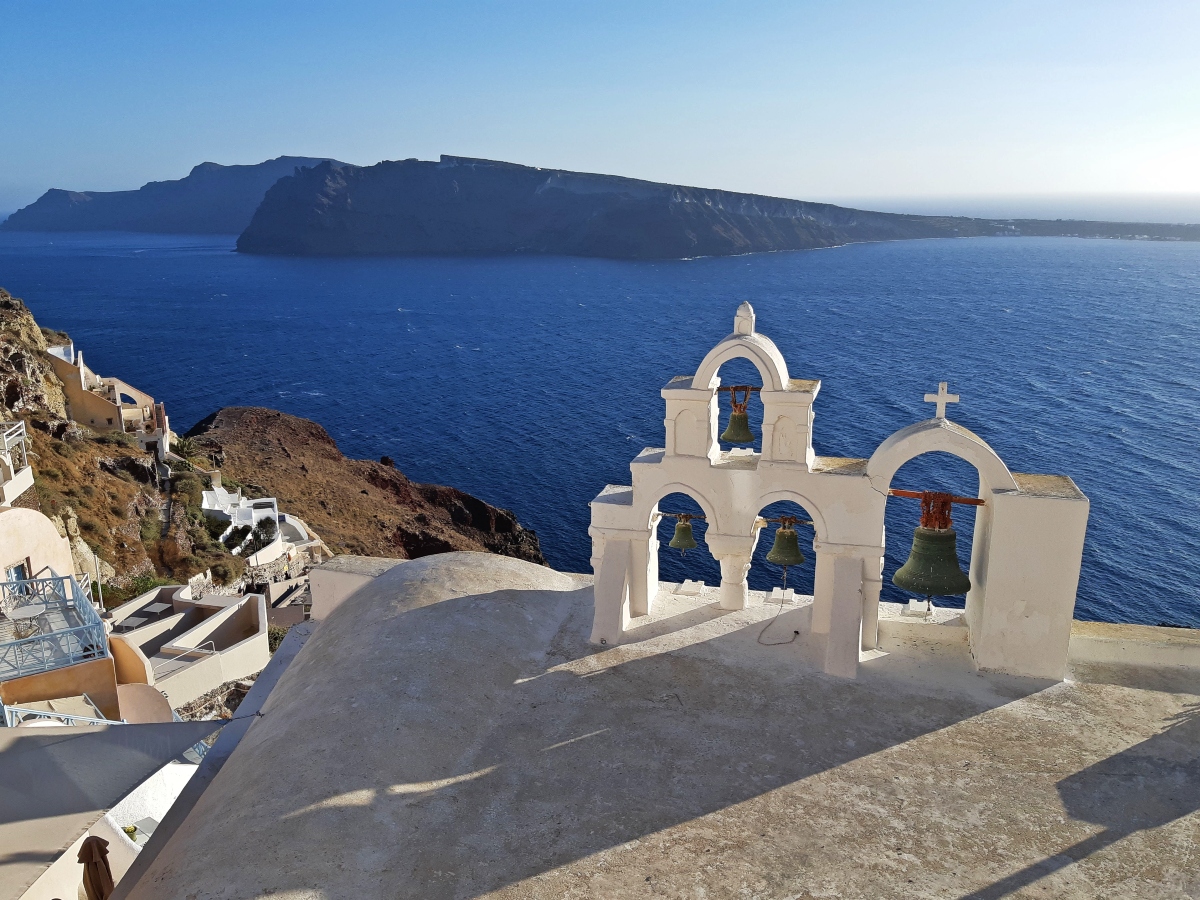Can you drink tap water in Greece? The short answer is, it depends on the area. Here is some more information if you are wondering if it’s safe to drink tap water in Greece.

Is it OK to drink tap water in Greece?
Is tap water in Greece safe to drink? This question always pops up on Greek travel forums, and there’s no single right answer. The quick answer is that it depends on the area.
Overall, you can generally drink tap water around mainland Greece. Tap water is absolutely safe for drinking and cooking in urban areas, plus smaller towns and many of the villages on the mainland.
When it comes to the islands, things are a little more complicated. It usually depends on the island’s location, plus on whether the island has water reservoirs, and / or a desalination plant. On bigger islands, like Crete, Rhodes or Corfu, the water might be drinkable in some areas, but not in others.
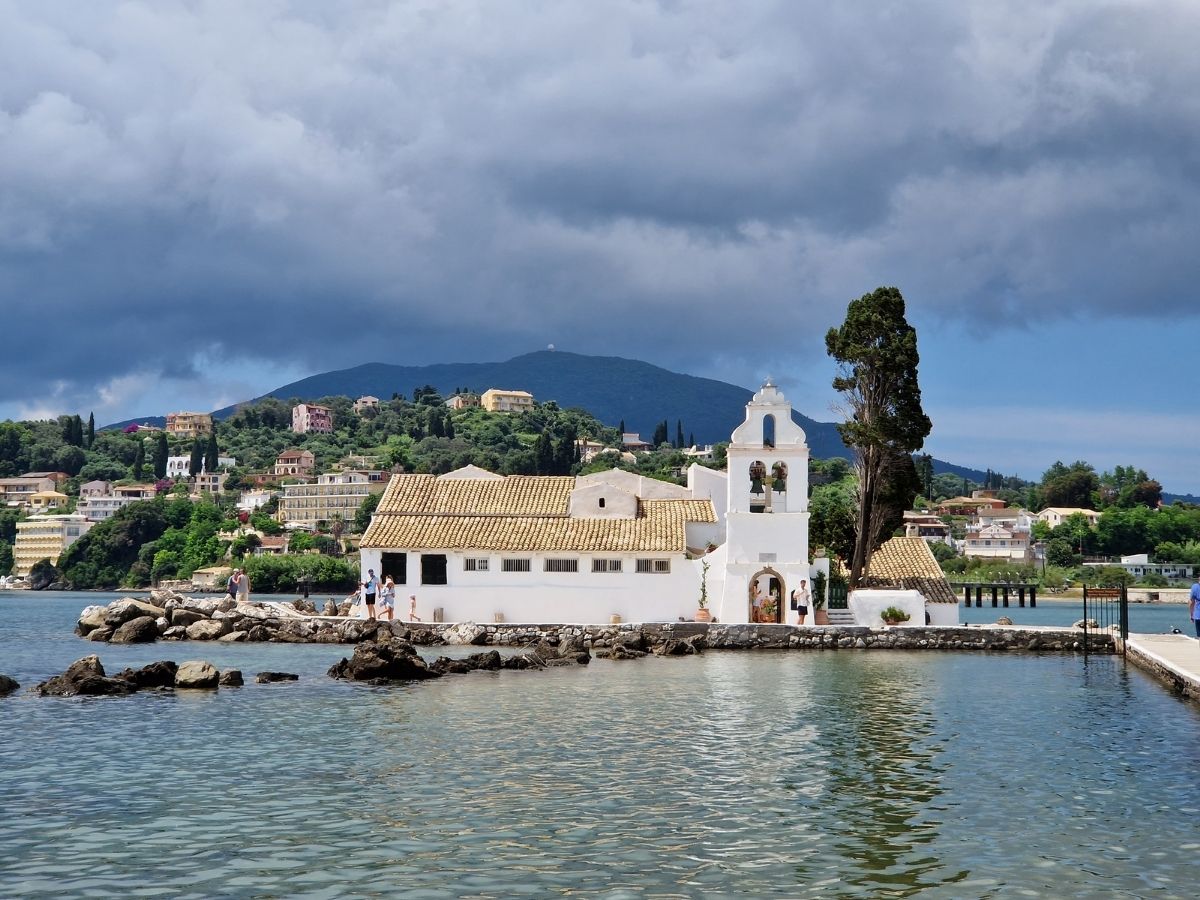
In some of the more remote areas of Greece, or the smaller islands, water quality can vary. In these cases, it’s usually recommended to drink bottled water just to be on the safe side.
All in all, it’s always best to check with your hotel / host, and other locals, for any specific recommendations regarding tap water in the area you’re visiting.
So, let’s have a look at some of the popular areas that you might visit in Greece.
Can you drink tap water in Athens?
As an Athenian, I can assure you that tap water in Athens is totally safe to drink. In fact, I think it tastes much better than tap water in some other European cities, like London for example.
Buildings in Athens are equipped with direct access to potable water, sourced from the nearby lakes of Marathon and Yliki, which is close to Thebes. These natural water reservoirs provide Athenians with a sustainable and reliable water supply of great quality.
Therefore, when you are in Athens you don’t need to purchase bottled water. This way, you can help minimize plastic waste.
You can also consider carrying a refillable bottle with you when you are out and about. In my experience, most establishments will be happy to give you a refill – I ask for refills all the time, and never had anyone say no!
There are also a few points where you can refill your bottle on the street, for example on Ermou Street, just across the street from Syntagma Square. But, to be honest, these are very few and you can’t quite rely on them.
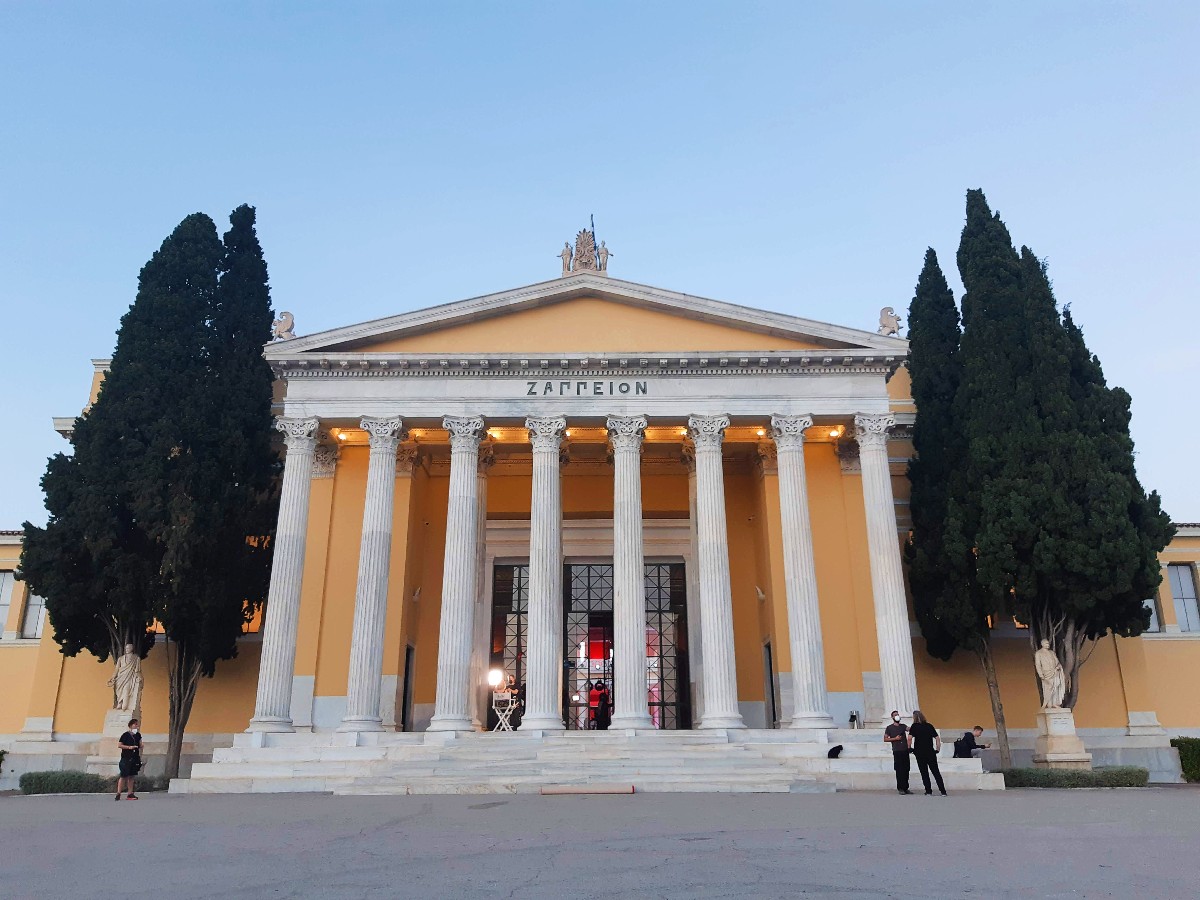
Is tap water OK to drink in Santorini?
The famous island of Santorini is one of the Cyclades islands. You can get there on a flight or a ferry from Athens, but there are also international flights from several European airports.
Unfortunately, tap water in Santorini is not always safe to drink. Due to the volcanic environment, water in Santorini might have traces of arsenic, which can be toxic in large quantities.
So, for the time being, you will need to buy bottled water in Santorini. Hopefully this will be reversed in the next few years, as the amount of plastic used on the popular island is far from negligible.
Can I drink tap water in Mykonos?
Mykonos is another one of the Cyclades islands, and is quite close to Santorini. Again, you can get there on a flight or a ferry from Athens, or fly in directly from certain airports in Europe.
Tap water in many areas of Mykonos comes from a newly installed desalination plant. Still, most locals prefer to buy water bottles, or sometimes use a home filter.
By the way, if you go to Mykonos, I can’t recommend this kayaking activity enough. It was my favourite thing to do in Mykonos – if you try it, say hi from Vanessa!
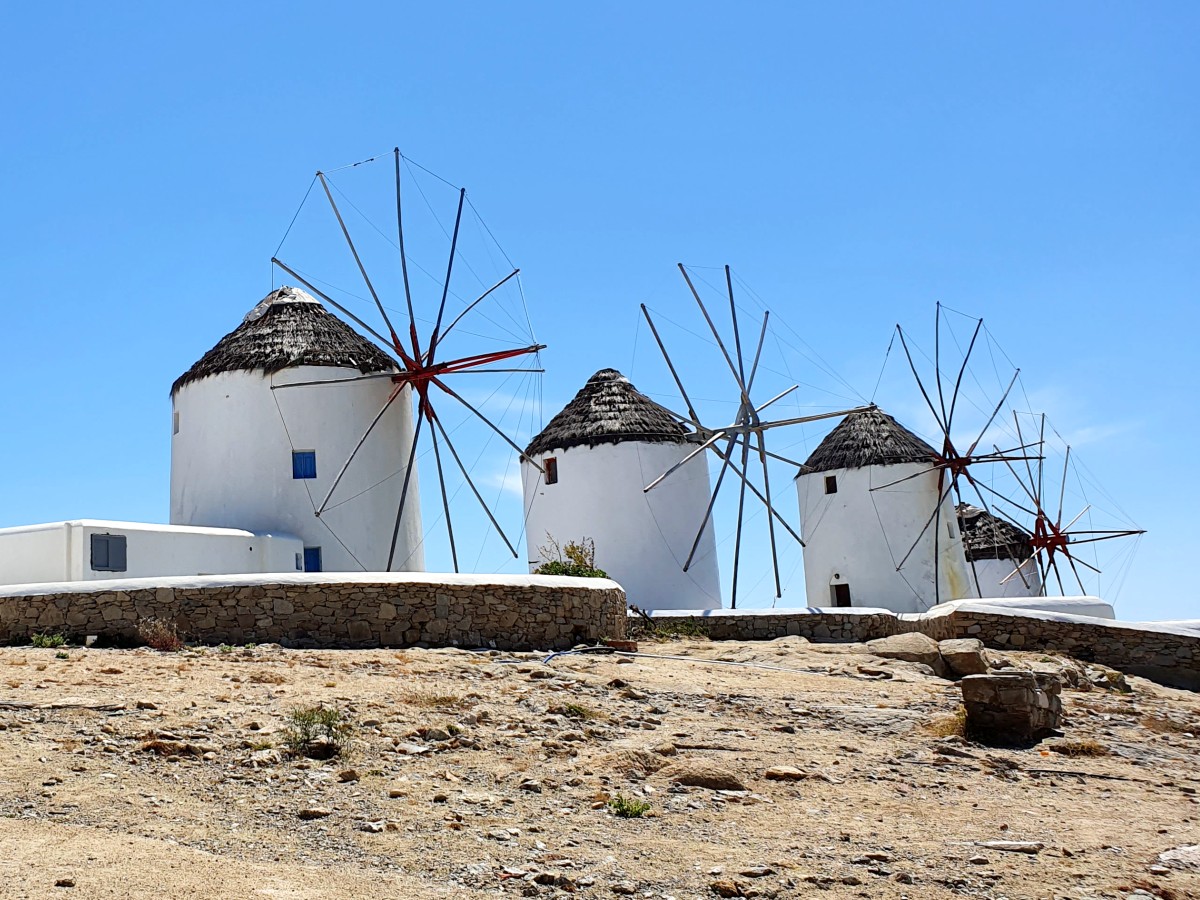
Can I drink tap water in Meteora?
The mountainous area of Meteora, which was recently added to the list of UNESCO Geoparks, is in the region of Thessaly in mainland Greece, about a 5-hour drive from Athens.
The water is perfectly safe to drink in Meteora. This includes the towns of Kalambaka and Kastraki, where most visitors will spend a night or two.
In my opinion, if you are going to Meteora, please spend at least one night there – it’s one of the most beautiful places in Greece.
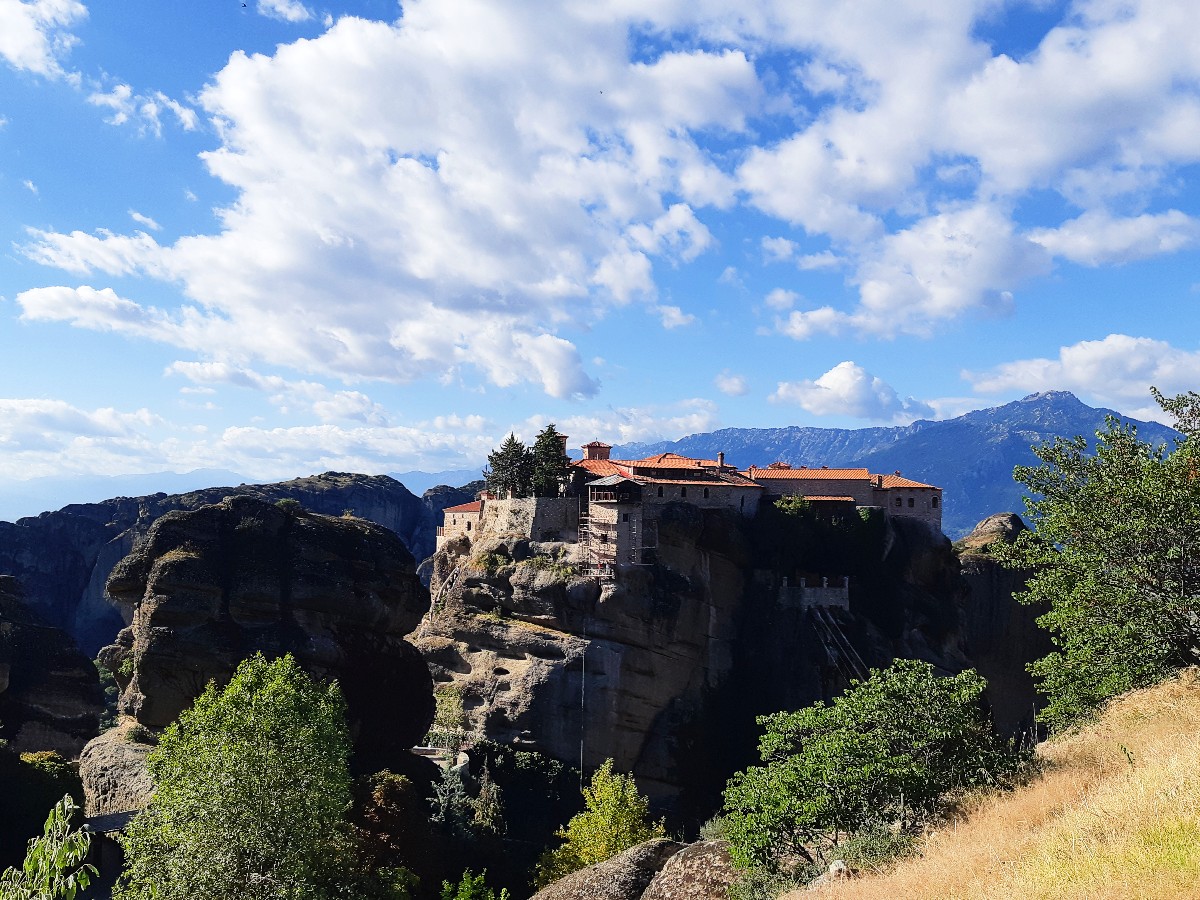
Where do the Greek islands get their water from?
In fact, this depends on the island. Some islands, like Crete for example, have underground water reservoirs.
The most arid islands, like the Cyclades and the Dodecanese groups of islands, mostly use desalination plants these days.
In the past, drinking water often had to be transported from the mainland, by means of water tankers, which was a time consuming and costly procedure. Today, water tankers are only used in emergency situations.
On some islands, the municipalities have installed large water stations, where you can get desalinated, ionized water either for free or for a minimal cost (5-10 cents per lt).
We have seen (and used) those in Nisyros, Kalymnos, Kasos, and a few more islands. It’s worth asking your hotel / room owner if there are any where you are located.
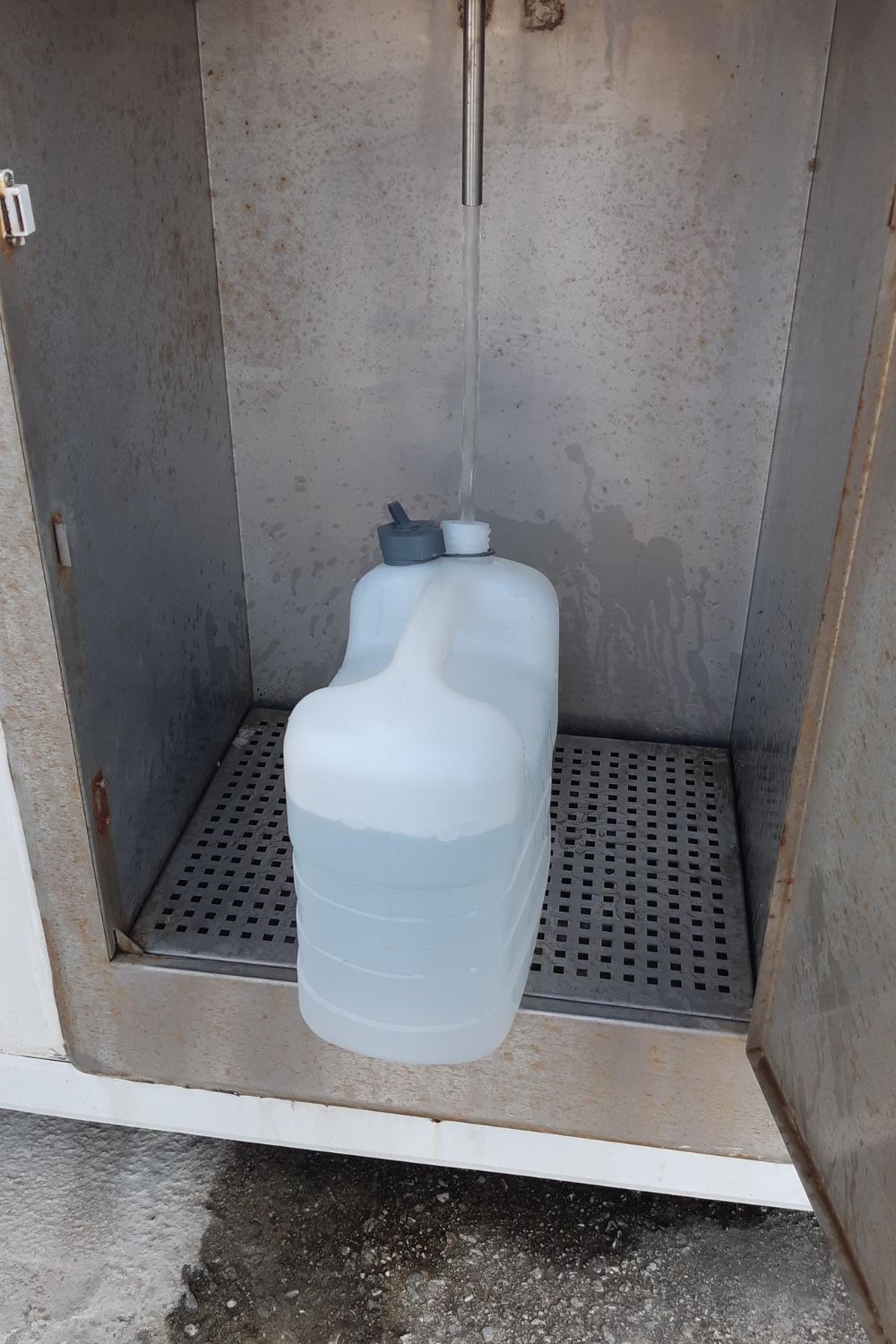
When is tap water OK to drink?
Have you ever wondered what makes tap water safe to drink? Or, in other words – when is tap water potable? Here is some insight!
Potable water is defined as water that is “clean” from both a chemical and a microbiological perspective, and is fit for human consumption without posing short-term or long-term health risks.
In nature, there’s no such thing as “pure” water. All water sources contain contaminants of various origins. Such impurities can lead to both acute and chronic health problems. This is why safeguarding water quality is a matter of immediate priority in contemporary environments.
For more information about what makes water suitable for human consumption, you can have a look at this EU document on water quality standards.
There’s also another factor that can affect the quality of water, and cannot be controlled. That’s the age – and the condition – of the water pipes that water is coming through!
With all these in mind, there are areas in Greece where tap water might taste hard or even brackish, but is still perfectly safe to drink. That’s why it’s always best to ask your local host if you can drink tap water, especially if you are staying in a remote area.
Are all types of bottled water the same?
And now, let’s see all the different types of bottled water you can buy in Greece, which are not all the same:
- Natural mineral water: sourced from underground water reservoirs, and contains a stable level of minerals and trace elements
- Spring water: derived from underground aquifers, from which water naturally flows to the Earth’s surface
- Purified water: sourced from surface or underground water, which has been suitably processed to meet public consumption standards
- Artesian water: comes from a well that passes through an aquifer where the water pressure is higher than the top of the aquifer
- Sparkling water: undergoes processing and possibly the addition of carbon dioxide gas (carbonation), retaining the same carbon dioxide percentage as in the source
- Well water: sourced from underground aquifers
- Table water: According to regulations, table water can be of any origin (e.g., from a well, a lake, a river, even desalinated seawater). Any purification process deemed necessary to ensure its composition complies with the EU Directive (98/83) for drinking water is permitted for table water. Usually, table water undergoes microfiltration and ozonation (disinfection with ozone). Essentially, the composition of table water and tap water is the same, and they have the same quality characteristics. The only difference is that table water is bottled, while tap water is running.
You can easily find natural mineral water all around Greece. Some of the most popular brands are ZAGORI (ΖΑΓΟΡΙ), ZAROS (ΖΑΡΟΣ), VIKOS (ΒΙΚΟΣ), MITSIKELI (ΜΙΤΣΙΚΕΛΙ) and AVRA (ΑΥΡΑ).
Example brands of table water are MARATA (ΜΑΡΑΤΑ), NEFELI (ΝΕΦΕΛΗ), DIRFYS (ΔΙΡΦΥΣ) and SAMARIA (ΣΑΜΑΡΙΑ).
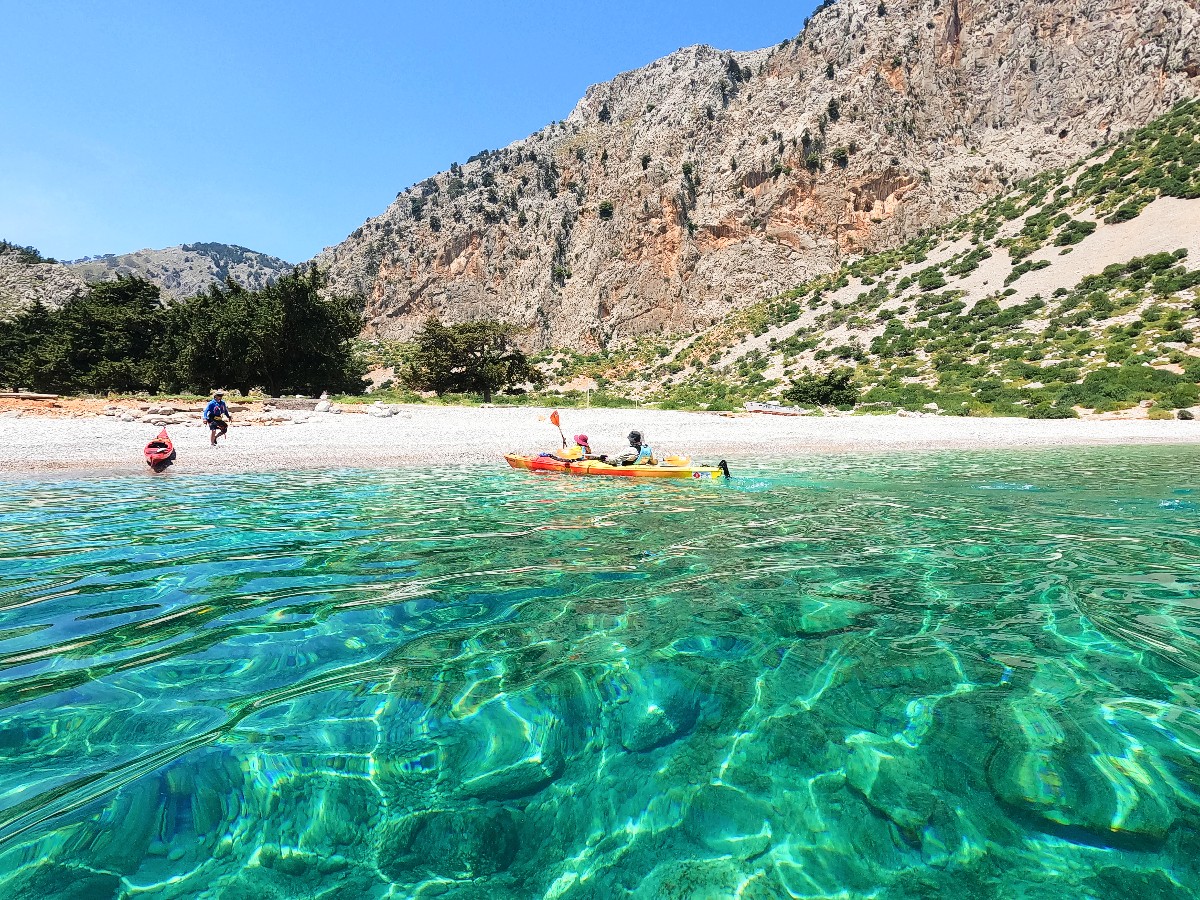
How much does bottled water cost in Greece?
Compared to many other European countries, bottled water in Greece is very cheap. The exact price depends on the bottle size, and the area.
The price of a 500 ml bottle of water is regulated by law, at least in theory. So, a small bottle of water can be priced at no more than 50 cents (60 cents at airports and bus / train stations).
This is the price you would normally pay at a kiosk or corner store, whereas it costs 20-25 cents if you buy it at a supermarket.
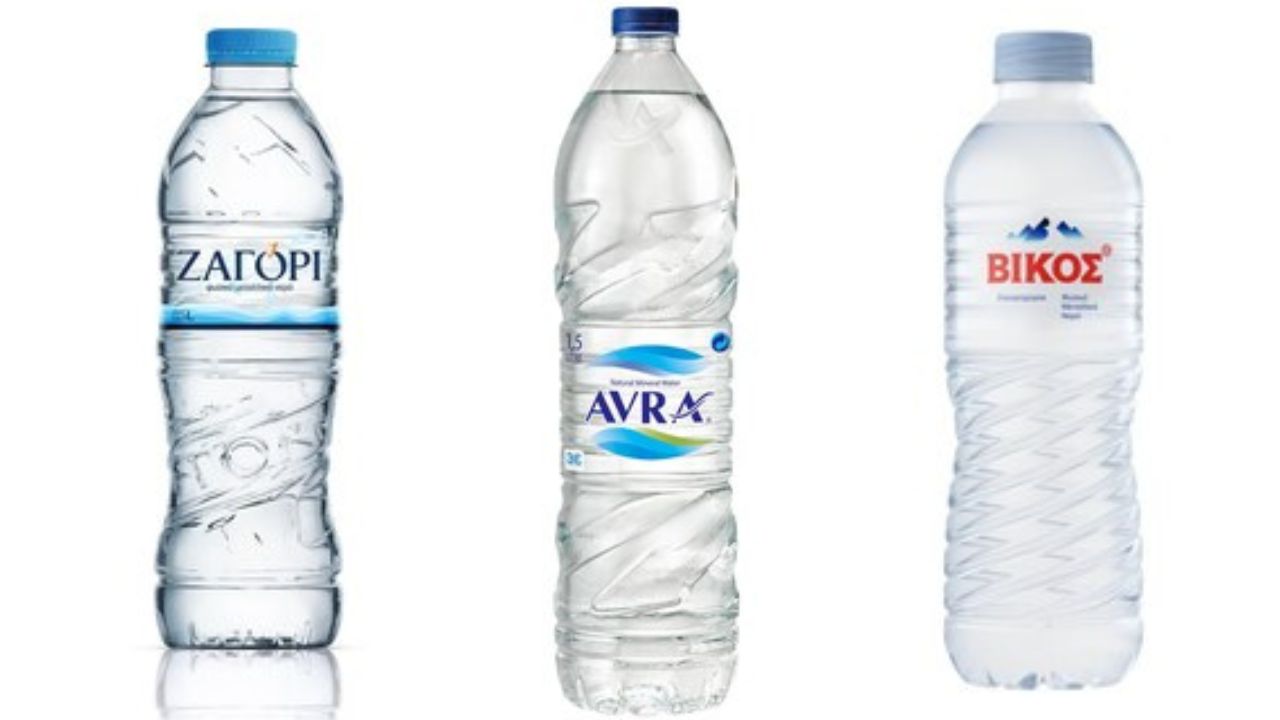
With that said, you can sometimes find that tavernas or restaurants charge a little extra for the 500 ml bottle. I’ve seen 80 cents and 1 euro – which is still much lower than in many European countries, but it’s not supposed to happen.
Prices for the 1 and 1.5 lt water bottles are not regulated. These would normally cost about 30-50 cents at a supermarket, and they are often sold in 6-packs. Most tavernas would charge those between 1.5 or 2.5 euros. I’ve heard of exorbitant prices in Mykonos and Santorini – maybe 5 or 7 euro for the 1 lt bottle!
Tips for using water in Greece
I hope you enjoyed this article. If you’ve read this far, I’ve got a huge favor to ask!
If you are traveling around Greece, and especially the drier islands, like the Cyclades or the Dodecanese, please try to reduce water waste. These regions usually get zero rainfall during the summer months, and water shortages are common, especially as tourist numbers seem to increase every year.
So, please turn the tap off when showering or brushing your teeth. It can make a huge difference to the locals, and also the quality of your own vacation.
More Greece travel tips
- Why you can’t flush toilet paper in Greece
- Tips for visiting Greece in summer
- How to stay cool in the summer in Athens
- How to island hop in Greece on a budget
- My Greek holiday mishaps – just for fun 🙂
 Hi! I’m Vanessa from Athens. Follow me on my social media for more Greece-related news and inspiration:
Hi! I’m Vanessa from Athens. Follow me on my social media for more Greece-related news and inspiration:
